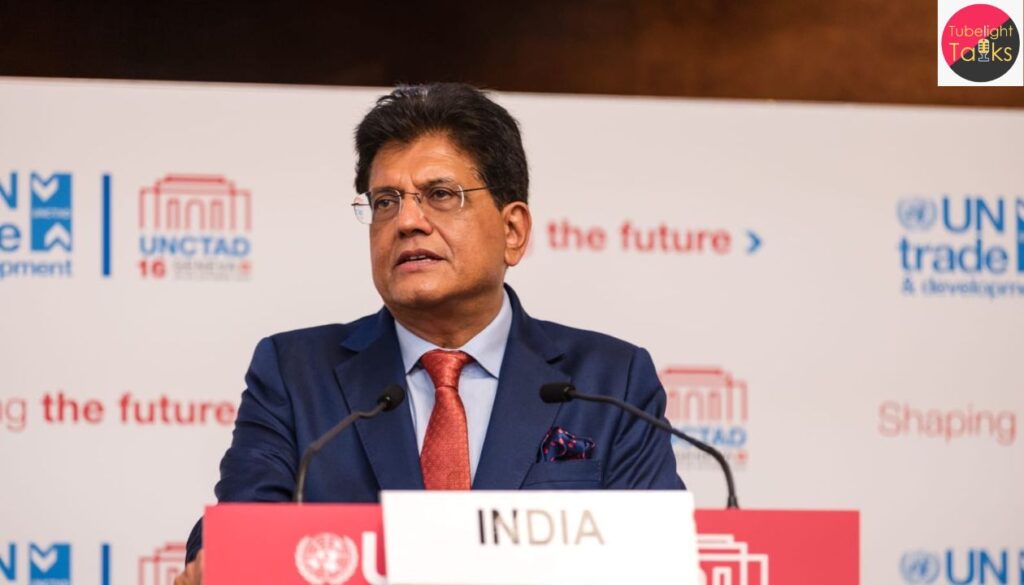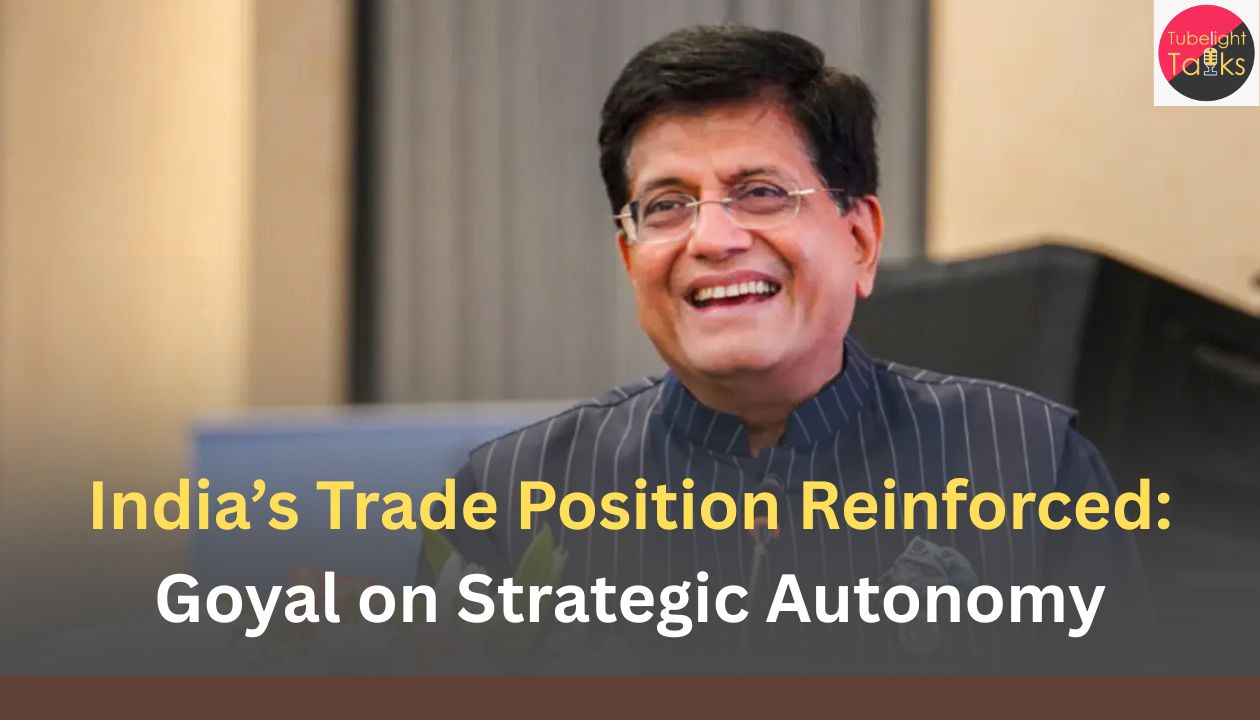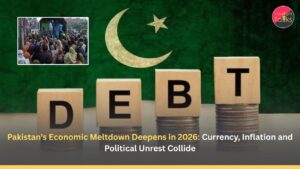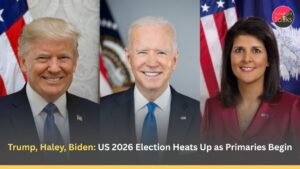India’s Trade Position Reinforced: Goyal on Strategic Autonomy
India’s Trade Position Reinforced: India finds itself at a pivotal moment in global trade. With high‑stakes negotiations underway with major partners such as the European Union and the United States, the nation’s Commerce & Industry Minister Piyush Goyal has publicly stated that India “will not sign any trade deal in a hurry or with a gun to our head.”
His remarks, made during the Berlin Global Dialogue, underline India’s insistence that any trade agreement must align with its national priorities, protect its domestic industries and not impose one‑sided conditions.
Why This Message Matters Now
Ongoing US‑India & EU‑India Talks
India is deep in negotiations with the US and the EU. According to a senior government official, talks with the US are “very near” to concluding, with language being finalised. At the same time, the EU–India free‑trade agreement (FTA) discussions are re‑energised, but key issues like market access, rules of origin and environmental standards remain sticking points.
Trade Pressures & Energy Security
Part of the backdrop is foreign pressure on India regarding its purchase of discounted Russian oil, which Western partners argue indirectly supports Russia’s war effort. Goyal has rejected the logic of being singled out and defended India’s trade and energy choices.
Key Highlights of Goyal’s Remarks
No Deals Under Pressure
Goyal repeatedly emphasised that India does not do deals in haste or when facing deadlines. He noted that trade agreements must reflect long‑term strategic interests.
Protecting National Interest
“India never takes decisions in the rush or under gun to our head,” he said, adding that India’s trade partnerships are built on equity and mutual benefit.

Diversifying Markets & Staying Resilient
Goyal noted India is exploring newer markets beyond current partners and building a resilient economy of 1.4 billion young people, thereby refusing to be confined by external pressure.
Implications of This Stance
For India’s Negotiating Strategy
India’s firm language signals that it expects substantial concession or reciprocity in trade deals. Others will now judge whether India means to insist on such terms.
For Domestic Industries & Farmers
With offers for opening up sectors like agriculture and dairy across the table, India’s message suggests it will protect vulnerable sectors and not yield lightly.
For Global Trade Dynamics
In a world of geopolitical flux, India’s assertive trade posture may prompt partners to reconsider how they approach strategy with Delhi. A slow‑and‑steady approach may become the model.
Challenges & Watch‑Points
Finalising the US Deal
Although India and the US are reported to be “very near” finalising a deal, many non‑tariff and sectoral issues remain (agriculture, energy, visas).
Balancing Between Protection & Openness
India must strike a balance: protect domestic interests while remaining open to global trade and investment. Too much protectionism may limit growth, too much liberalisation may hurt vulnerable sectors.
Managing External Pressures
India continues to face pressure especially on energy imports (Russia) and trade concessions. Walking this diplomatic‑economic tightrope will test policy agility.
Trade is Not Race But Means to Shared Prosperity
In a global landscape of deals, tariffs and negotiations, the teachings of Sant Rampal Ji Maharaj remind us that true progress lies not just in economic numbers, but in purpose, integrity and collective upliftment. When India negotiates trade agreements, the goal should not merely be more exports or larger numbers—rather, they should serve the well‑being of its people, strengthen its industries without leaving the vulnerable behind, and build partnerships rooted in mutual respect, not compulsion. As Goyal’s remarks suggest, trade is not a race, but a means to national resilience and shared prosperity.
What to Monitor in Coming Weeks
Announcement of Any Deal
Will a formal agreement with the US or EU be announced soon? What will be the final “text” and key concessions?
Read Also: EU Council Approves Strategic Roadmap to Strengthen EU‑India Ties
Sector‑Specific Commitments
Look for how India handles sensitive sectors like agriculture, dairy, energy exports/imports and manufacturing in any deal.
Policy Signals & Market Reactions
How will domestic industries respond? Will markets move based on deal expectations? Will tariffs or access provisions shift?
FAQs: India’s Trade Deal Stance by Piyush Goyal
Q1. What did Piyush Goyal say about trade deals?
He stated that India will not sign trade agreements in a hurry or when under pressure — emphasising long‑term strategic partnerships.
Q2. With which countries is India negotiating?
India is in active talks with the United States and the European Union over trade agreements.
Q3. What are India’s red lines in trade negotiations?
India rejects one‑sided conditions or deals that restrict its trade options. It also emphasises national interest, protecting sensitive sectors and choosing partners based on long‑term value.
Q4. Why is this stance significant today?
Because India is under pressure from major economies on energy imports (e.g., Russian oil) and trade barriers (tariffs). Its refusal to rush signals strategic autonomy in global trade.
Q5. What could be next for India in trade policy?
Watch for formalisation of deals, announcements of market access terms, tariff changes, and new trade partnerships beyond traditional blocs.











Discussion (0)